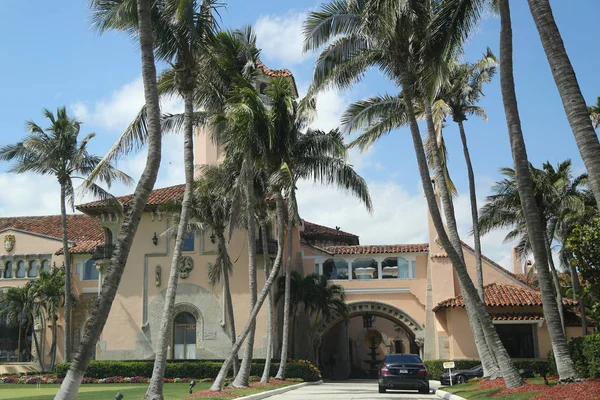Trump’s Syrian Opportunity
The president-elect has the chance to end American entanglement in the Middle East.

With the shock overthrow of the Assad dynastic dictatorship that ruled Syria since 1971, new diplomatic opportunities are opening for the incoming administration. If President-elect Donald Trump is serious about his “ending forever wars” rhetoric, Syria offers him a chance to grab a low-hanging fruit.
Encouragingly, Trump himself seems to realize that. Commenting on Syria, he suggested that the events unfolding there are “not our fight”. He said that the “U.S. should have nothing to do with it (the situation in Syria). Let it play out. Do not get involved”.
The Vice-President-elect JD Vance echoed this sentiment. When the neoconservative Washington Post columnist Josh Rogin categorically declared that in Syria “Freedom won[;] Russia, Iran, Hezbollah and Assad lost,” Vance admitted that such comments “made him nervous because the last time this guy was celebrating events in Syria, we saw the mass slaughter of Christians and a refugee crisis that destabilized Europe”.
Trump-Vance’s prudence, as opposed to the wildly optimistic hawkish takes, is well advised. As Stimson Center’s Emma Ashford warned, “the track record of Arab Spring revolutions suggests a healthy amount of caution is warranted on where this is headed”.
That certainly applies to Syria. Assad’s regime was an odious tyranny even by Middle Eastern standards, and its collapse is unlamented. The leader of the Islamist terrorist opposition Hayat Tahrir al-Sham (HTS)—formerly associated with Al-Qaeda—and the de facto new ruler of Syria is Ahmed al-Sharaa, more widely known as Mohammed al-Jolani, who is considered a terrorist by the U.S. and has a bounty of $10 million on his head. Since seizing power, he has embarked on a charm offensive promising an inclusive governance respectful of Syria’s ethnic and confessional diversity. Yet gruesome details of the extrajudicial executions of former regime officials and members of the Alawite religious group (to which the Assad clan happens to belong) are already emerging.
While it is likely that these acts are carried out by disparate terrorists and common criminals, rather than centrally planned by the HTS leadership in Damascus, it is a disturbing harbinger of what may come—not some kind of an orderly transition to a new government, but militia violence and sectarian bloodshed. Meanwhile, relations between the self-styled “jihadist-nationalist” HTS, the pro-Turkish Syrian National Army (SNA), and the U.S.-backed, Kurdish-dominated Syrian Democratic Forces (SDF) are not settled and hold much potential for future violence. Taking advantage of the state collapse in Syria, Turkey and Israel are grabbing more Syrian land.
In the middle of this violent chaos are some 900 American troops still deployed in Syria, ostensibly to fight ISIS. Channeling his prudence into actions, Trump should extricate these troops from Syria as soon as possible. He already attempted to do so during his first term, but was sabotaged by his own officials. This should never happen again, and there is a good chance that Trump will indeed try to finally fulfil his intention to leave Syria.
This would also help Trump to avoid an entanglement with Iran—something the hawks have been pushing for time out of mind. As Jon Hoffman notes in his paper for the Cato Institute, quoting the former U.S. ambassador in Damascus, Robert Ford, the U.S. forces in Syria are in reality deployed there to serve as a tripwire for a future war with Iran, not to fight ISIS.
No doubt, the hawks in Washington and Jerusalem will argue to Trump that the collapse of the Iran-led “Axis of Resistance” made Iran more vulnerable than ever and now is the time to deliver a decisive blow to the Islamic Republic.
That may certainly sound rational from an Israeli point of view, but not for the U.S. Iran’s current weakness should represent an incentive for Washington to seek a deal with Tehran from a position of strength rather than go for a regime change or military intervention, both explicitly rejected by Trump and Vance. And for a good reason. An expert on regional affairs, closely familiar with the thinking in Tehran, told me that, if the Iranian leadership perceives that it has entered an “existential phase” of the fight for its survival—as it undoubtedly would if faced with a prospect of a direct U.S./Israeli attack—it may throw at its enemies all the remaining assets it has.
Even in its weakened form, Iran still has a formidable arsenal of ballistic missiles and drones, as well as dependable allies and proxies throughout the Middle East and the Gulf. Tehran has also intensified its military-technical cooperation with Moscow and is accelerating its nuclear program. It would pose an immediate threat to the American troops and military bases deployed throughout the region. The last thing Trump needs is an entanglement in another war in the Middle East.
There are signs that Trump’s team understands the stakes. For one thing, it is notable how Brian Hook, a key Iran hawk in the first Trump administration who was initially placed in charge of the transition at the State Department, has largely disappeared from the public eye. As some well-informed Washington insiders told me, Trump’s team was dissatisfied with Hook’s remarks that the incoming administration would resume the maximum pressure campaign against Iran as, apparently, they were delivered without a proper assessment of the policy options.
On the other hand, such figures as Michael Boulos, Trump’s Lebanese-origin son-in-law and his point man on the Middle East, and his father, Massad Boulos, who helped Trump to court the Arab-American vote during the presidential elections this year, are reportedly gaining more influence. As Ali Rizk explained in The American Conservative, the Boulos family is close to Suleiman Frangieh, the Christian Maronite presidential candidate in Lebanon who is supported by none other than the Iran-aligned Hezbollah. While allegiances may change, this connection alone suggests an access to forces whose cooperation would be indispensable for Trump to draw the line on the American wars in the Middle East.
Upon assuming the office, in order to appease the Iran hawks, Trump may feel compelled to announce some new measures against Iran. However, those should be not too drastic, keeping open a political space where Tehran need not overreact in response. Channels of conversation should exist to avoid mutual misunderstandings and overbearing, and one would assume both sides are busy establishing them. Once the political space is secured in Washington and Tehran, both sides need to move to some sort of a framework agreement that would at least avoid a direct, immediate clash, and then work out a more detailed deal.
Given Tehran’s weakness, the pragmatic government currently in charge there should be amenable to a deal with Trump. And for Trump, this would deliver on his “peace through strength” formula.
The upheaval in Syria presented Trump with an unexpected opportunity. He should go for it.
The post Trump’s Syrian Opportunity appeared first on The American Conservative.

